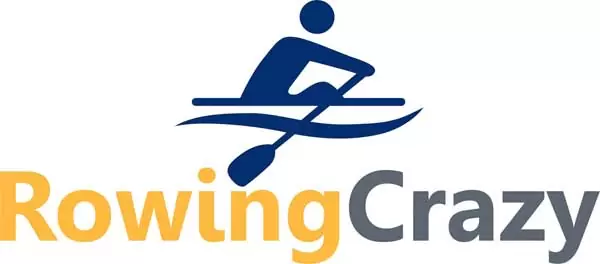
Hi friends! It’s Petra, and in today’s article, I want to talk to those of you who are interested in rowing competitively.
You may have been told that you don’t have the “right” body type for rowing, and I’m here to tell you that, unless you plan on being an Olympic rower, you are probably just fine.
What body type is best for rowing? Do you have to be super tall or skinny? What makes a good crew rower?
Keep reading, and hopefully, I’ll be able to answer all your questions.
- Related Topic: Inspirational Rowing Quotes
What Body Type Is Ideal for Rowing?
While some sports have clear requirements for an athlete’s body type (ask anyone who is over 6 foot 6 inches how many basketball teams they’ve been asked to join!), it’s not the case in rowing. Still, some rowing coaches won’t even consider you if you aren’t very tall, discouraging short rowers from even trying.
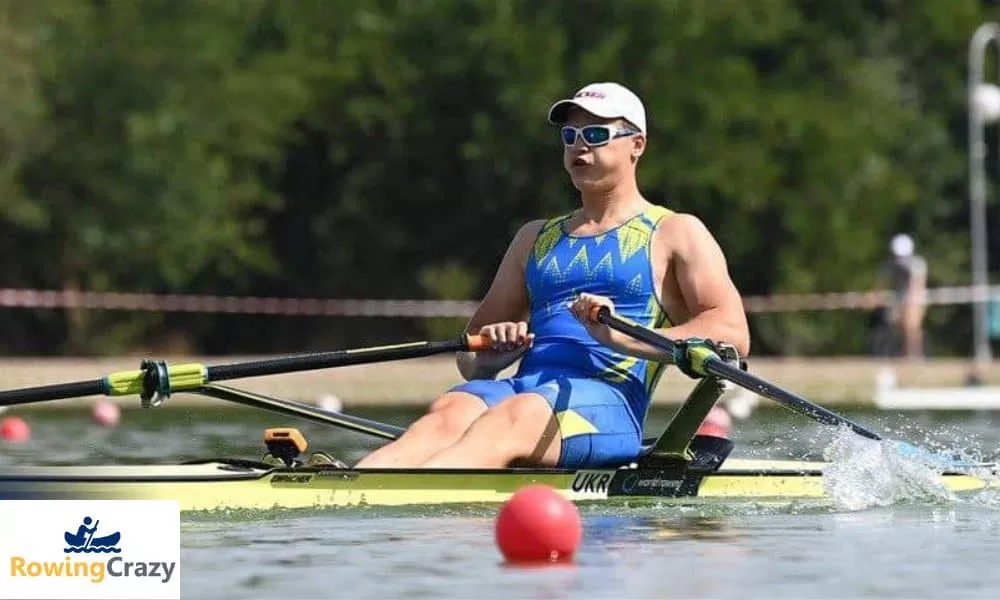
This is just wrong, in my opinion. Personally, I feel that there is room for everyone in this sport.
Yes, there is an ideal, but only a very select number of elite rowers will fit in this class.
The perfect rower is quite tall (6’3″ to 6’5″ for men and 5’11” to 6′ for women). This is because tall people also have long arms and legs, giving them plenty of power and the ability to take longer strokes.
This does not mean that if you are a woman who is 5 feet 6 inches tall, you are out of luck.
There are other things to consider. Yes, if you want to be an Olympic rower, chances are that the taller people are going to beat you, but there are so many other opportunities that you can engage in!
Remember that taller also means heavier, which is NOT a good thing in rowing, I think WAY too many coaches dismiss average-size rowers and forget that tall means more weight.
The average 6-foot 4-inch male elite rower weighs about 200 pounds! Compare that to a 5-foot 6-inch female rower weighing 140 pounds or less!
Don’t forget that there is also a lightweight category, where men weigh a maximum of 159 pounds and are often only 5 foot 9 inches or less.
To qualify for the lightweight category, women can weigh no more than 130 pounds and are frequently 5 foot 5 or shorter!
Being tall is great, but there are still lots of opportunities for you!
What If I’m Overweight and Want to Row to Lose Weight?
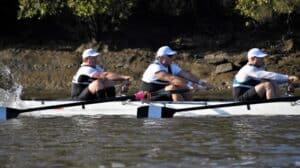
The more the boat weighs, the slower the boat will go. This also means that rowers tend to be thinner but full of muscles to help power the boat.
If you are extremely overweight, you should first focus on using an indoor rowing machine to lose weight and improve your performance before joining a boat club.
Most competitive rowers start at a very young age, developing not only their rowing skills but their mental strength as well.
Competitive rowing is not for sissies! You need to push your body past any limit you may think you have and then ask it to do more! This is how most rowers win gold medals.
Even if you simply want to compete locally, you’ll still need at least some physical characteristics that will compliment rowing, such as developing some serious muscles via the weight room, building up your cardiovascular capacity, and getting your body down to a more average weight.
What Is the Most Important Thing in Rowing?
Ask ten rowers this question, and you might get ten different answers.
From my experience, someone can be the tallest, strongest rower and still not be successful because they think rowing is all about them.
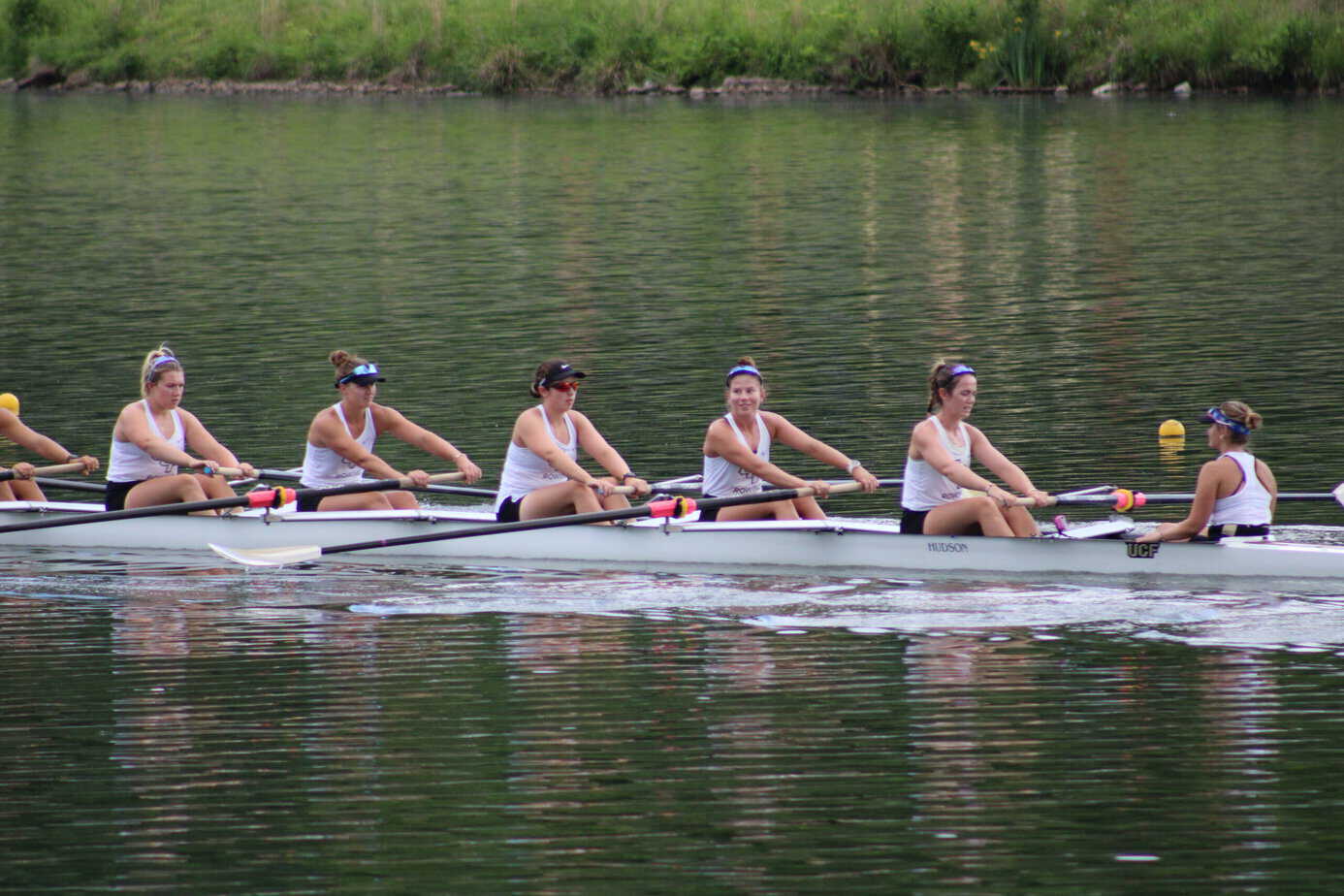
To be successful at rowing (unless you are a single sculler), you need to learn about the triangle of trust.
If you have a coxswain, you have to give him or her your complete, 100 percent, no-questions-asked trust. You are rowing backward (so to speak) and can’t see where you are going. You can’t stop rowing to turn around and look.
If your coxswain tells you to give it your best 10 power strokes, you have to trust the coxswain’s timing. If you think it’s too early or too late, it doesn’t matter, you have to trust what the coxswain says, and go with it!
Second, you have to trust your rowing partners. Trust that they are giving it their all and that no one is going to whack you with their oar if they think you’re slacking.
Last, you have to trust your coach, even if you don’t like or completely disagree with what they are saying!
If your coach asks you to try a new oar maneuver, trust that they have a reason for asking you to give it a try, and do your best to avoid whining that you don’t like it.
I can do so much more with a group of trusting team players who give it their all, despite being only 5 feet 5 inches tall than a group of narcissists who are 6 feet 6 inches tall!
Yes, other things matter, but in my opinion, learning this triangle of trust is one of the most important things for a crew to have.
How Long Does It Take to Get Good at Rowing?
This will depend on your age and how much time you spend practicing.
If it’s not already obvious, younger rowers tend to pick up new skills faster than older (over 30) rowers.
This doesn’t mean that rowers over 30 can’t learn new skills, it just might take them a bit longer.
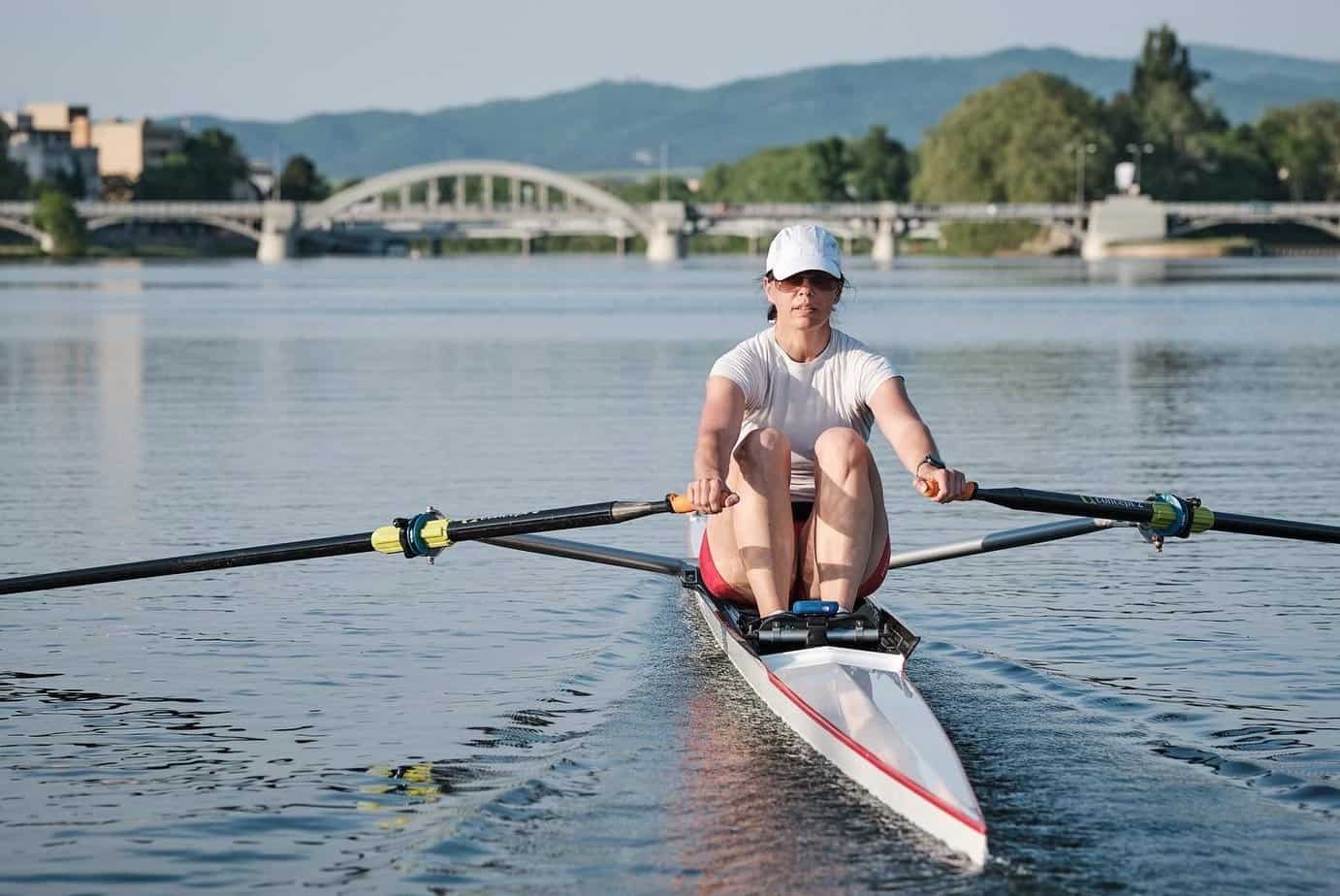
Let’s say that you practice two or three times a week for at least 1 hour at each practice session. The average person (say between 18 and 25 years of age) should start seeing improvement in about 8 weeks.
If you are over 30, that same practice session should take you about 10-12 weeks.
It also depends on what you are trying to master.
Do you need to improve your endurance? Are you learning some new skills? Do you want to reduce your split time?
Be realistic with your training goals. As much as you may want to, you won’t cut your split time by 3 seconds in two weeks. These types of unrealistic goals will only discourage you.
If you aren’t sure what is a more reasonable goal, ask your coach.
What Makes a Good Crew Rower?
There are so many things to look for, it’s hard to choose just one attribute.
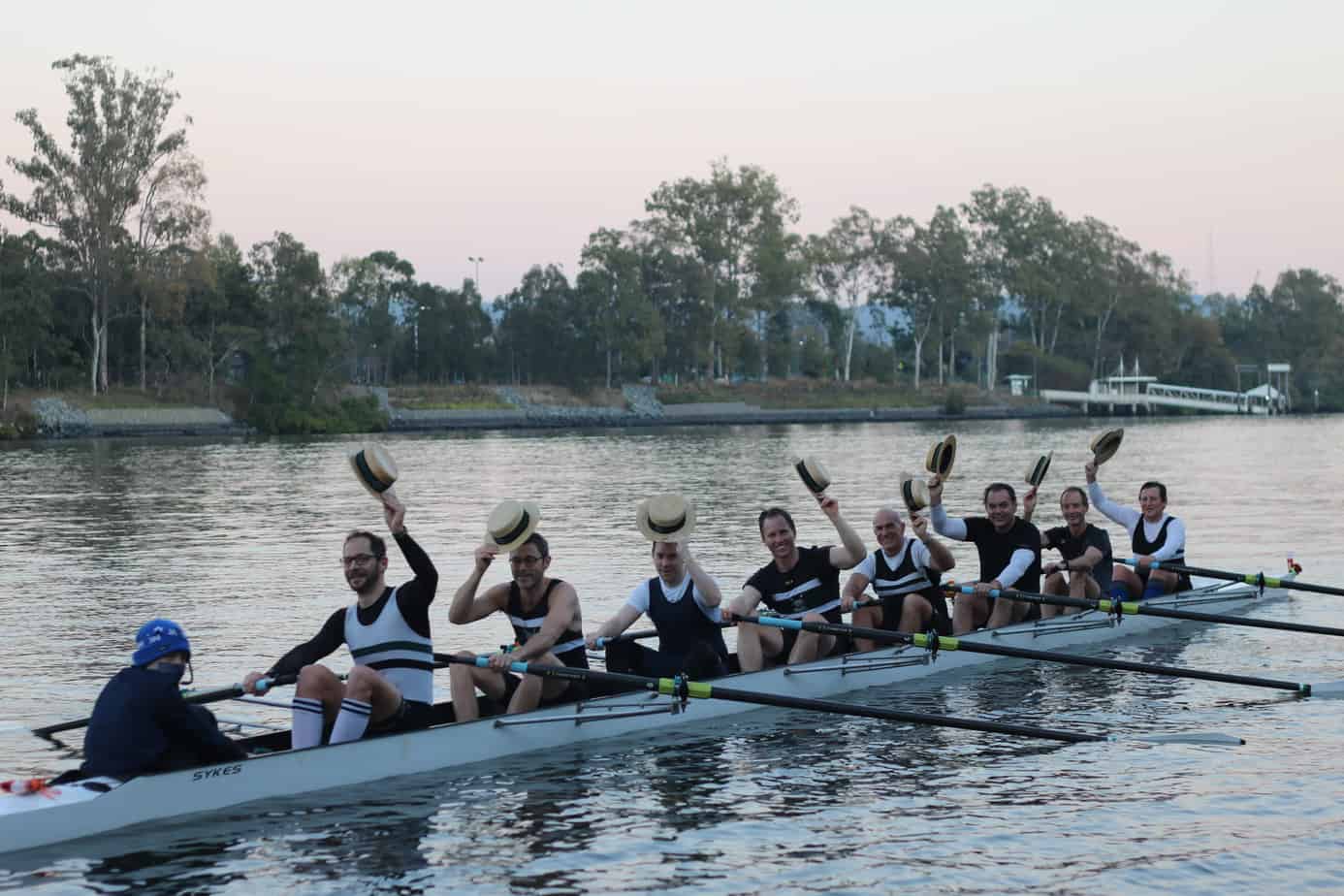
I think the best crew team members have the following:
- Perseverance. If someone gives up the moment something happens (it starts raining, for example, or if they think it’s too cold to practice in the morning), then everyone will quickly lose confidence in this person. You really need to have a “go-getter” attitude.
- Competitive Spirit. If you don’t really care about winning, go ride the erg. Everyone else wants to dedicate their time and effort so the team can win- why should you give any less?
- Sportsmanship. You’ve heard of road rage, right? People who lose all self-control and get furious over small mistakes when driving? That has very little to do with driving but instead is caused more by the driver’s personality. You need to be a good sport and must understand that if you lose, it’s not because the other side “cheated” or hit you with their wake. Shake hands, smile, and vow revenge at the next regatta.
- Leadership. Rowing is a mentally and physically demanding sport. If you have ideas for the crew, let them know. If you want others to listen to you, show them your heart and explain what you are trying to accomplish. No one wants to hear a blowhard, so be sure what your goals are. If you have an idea for a fundraiser (for example) so your team can make a far-away regatta, explain the plan and win the hearts of your crew so that you can get this done!
- Enthusiasm. No one wants to listen to a whiner or those “negative Nellies” who complain about everything. Have a positive, can-do, let’s-get-to-it attitude, and you will be a very welcome part of the crew.
- Responsible. If you say you are going to show up for practice, then please do everything possible to do exactly that! Be on time, and call others if something prevents you from coming to practice or some other event. Don’t be a flake or you will quickly find yourself benched.
Did you notice that being tall isn’t on this list? It’s a big plus, don’t get me wrong, but I’ll take an enthusiastic, positive, responsible leader who is a bit shorter over a very tall, arrogant, irresponsible loafer every time.
How to Be a Stronger Rower
You can sum this up in three words: Practice. Practice. Practice.
Yes, you should use some weights to help build up your legs and glutes. Yes, you should eat a super-healthy diet, and yes, you should get in your 8 hours of Z’s, but none of those things will matter much without practice.
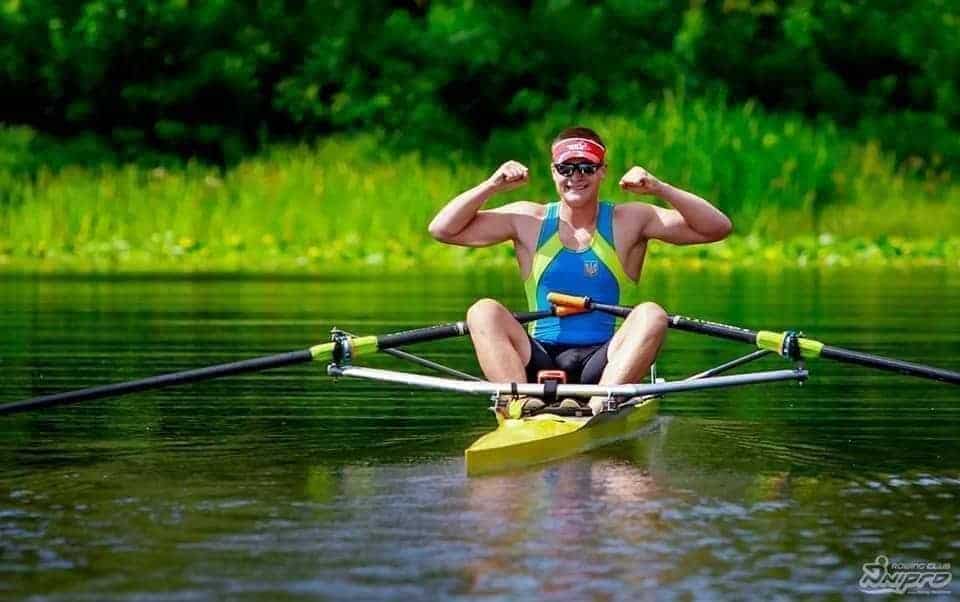
This is where you really need to PUSH yourself. Work on giving about 75 percent of your effort and holding it there for 25 minutes. Do that two or three times a week, then increase it to 30 minutes.
Push yourself to your limits and beyond, and you’ll have what it takes to be an outstanding, if not elite, rower.
The Bottom Line
You don’t have to be tall, with long arms and legs, but it certainly does help.
Work on the erg to lose weight, if necessary, and be a good team member.
Everyone wants to work alongside responsible, happy people. Be a positive inspiration, and you will find a place in the rowing world, even if you are only 5 feet 5.
Be happy, don’t hate your body, and have a good time rowing!
Written by Petra Amara – RowingCrazy.com
CEO & Founder of RowingCrazy, National Rower, Coxswain Womens Eight Team, Rowing Coach & Writer
Petra is a Mother of two and owner of Rowingcrazy.com. Petra lives and breathes rowing, she also has a passion for writing which lead her to start RowingCrazy.com to share her rowing experience and expertise with others.



